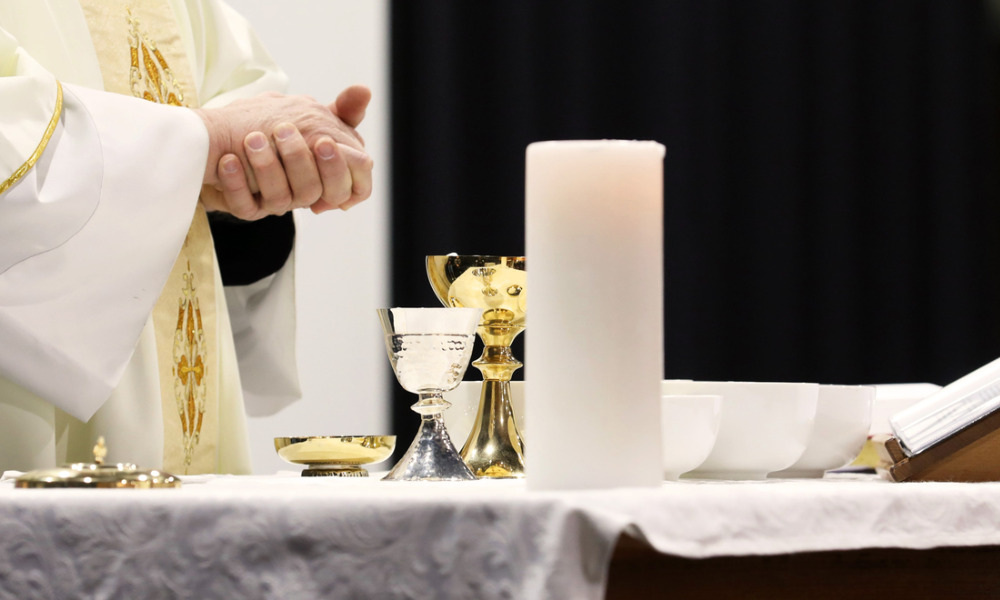Case involves a woman who was sexually abused by a priest in 1968 when she was 14 years old

The High Court has refused to grant a permanent stay in a historic sexual abuse case against the Roman Catholic Church for the Diocese of Lismore.
In GLJ v The Trustees of the Roman Catholic Church for the Diocese of Lismore [2023] HCA 32, the appellant, identified as GLJ, had filed a statement of claim in the NSW Supreme Court alleging sexual abuse by a Catholic priest, Father Anderson, in 1968 when she was 14 years old.
GLJ was born in Lismore in 1954. She was raised in the Catholic faith to believe priests were God's representatives on earth. GLJ alleged that in 1968, her father was seriously injured in a motorcycle accident. The diocese directed Father Anderson to attend GLJ's family home to provide pastoral and spiritual support and guidance. GLJ alleged that Father Anderson held her down and sexually abused her. She claimed that, as a result, she had complex post-traumatic stress disorder, chronic and recurrent depressive disorders, generalised anxiety disorder, panic disorder, sexual disorder, enduring post-traumatic personality change and harmful alcohol use.
GLJ claimed damages, including aggravated and exemplary damages, based on the diocese both breaching a duty of care it owed to her to protect her from the reasonably foreseeable risk of harm of sexual abuse by Father Anderson and being vicariously liable for Father Anderson's sexual abuse of her.
The diocese filed a notice of motion seeking a permanent stay of the proceedings, arguing that a fair trial was impossible due to the death of key witnesses, including Father Anderson and other senior figures within the church. The diocese contended that without these crucial witnesses, it could not adequately investigate or defend against the allegations.
The central issue before the High Court was whether GLJ's proceedings against the diocese involved an abuse of process justifying a permanent stay of the proceedings. The diocese asserted that any trial of the proceedings 55 years after the time of the alleged sexual assault would be necessarily unfair to the diocese in all of the circumstances.
The NSW Supreme Court dismissed the diocese's application for a permanent stay. The Court of Appeal overturned the decision, citing an error in principle. GLJ then brought the matter to the High Court.
The High Court explained that the grant of a permanent stay to prevent an abuse of process involves an ultimate decision that permitting a matter to go to trial and the rendering of a verdict following trial would be irreconcilable with the administration of justice through the operation of the adversarial system. The court emphasised that such an ultimate decision must be one of last resort because no other option is available. Only an exceptional case justifies the exercise of the power of a court to stay proceedings permanently. If a court refuses to exercise its jurisdiction to hear and decide cases in other than exceptional circumstances and as a last resort to protect the administration of justice through the operation of the adversarial system, that refusal itself will both work injustice and bring the administration of justice into disrepute.
The court found that the abolition of the limitation period that would have applied to and precluded the appellant's proceedings before the enactment of the Limitation Amendment (Child Abuse) Act 2016 (NSW) has created a new legal context within which the alleged abuse of process must be evaluated. The court explained that in this new legal context, the diocese's contention that any trial of the proceedings would be necessarily unfair must be rejected.
The court noted that the diocese acknowledged that its case for a permanent stay for abuse of process was based only on the necessary unfairness of a trial and not undue oppression or unfairness otherwise. Accordingly, the court ruled that no permanent stay is justified. The proceedings must go to trial.
Child abuse survivors and their legal advocates have welcomed the High Court's decision, overruling the use of a permanent stay. Maurice Blackburn explained that the High Court decision means many other historic abuse cases that have been in limbo for months pending the outcome of GLJ's case can now proceed without the threat of a permanent stay unless exceptional circumstances apply.
"We know it takes an average of more than 20 years for a victim of child sexual abuse to tell someone about the abuse," said John Rule, principal lawyer from Maurice Blackburn. "This decision means survivors of child sexual abuse will not be excluded from justice simply because their abuser died before they came forward."
Following the recommendation of the Royal Commission, all state and territory governments had removed time limits for the bringing of child abuse civil compensation claims.
"This decision will end the misuse of this unfair legal tactic, ensuring more survivors can pursue justice over the lifelong trauma of the horrific abuse they experienced as children," Rule said.










